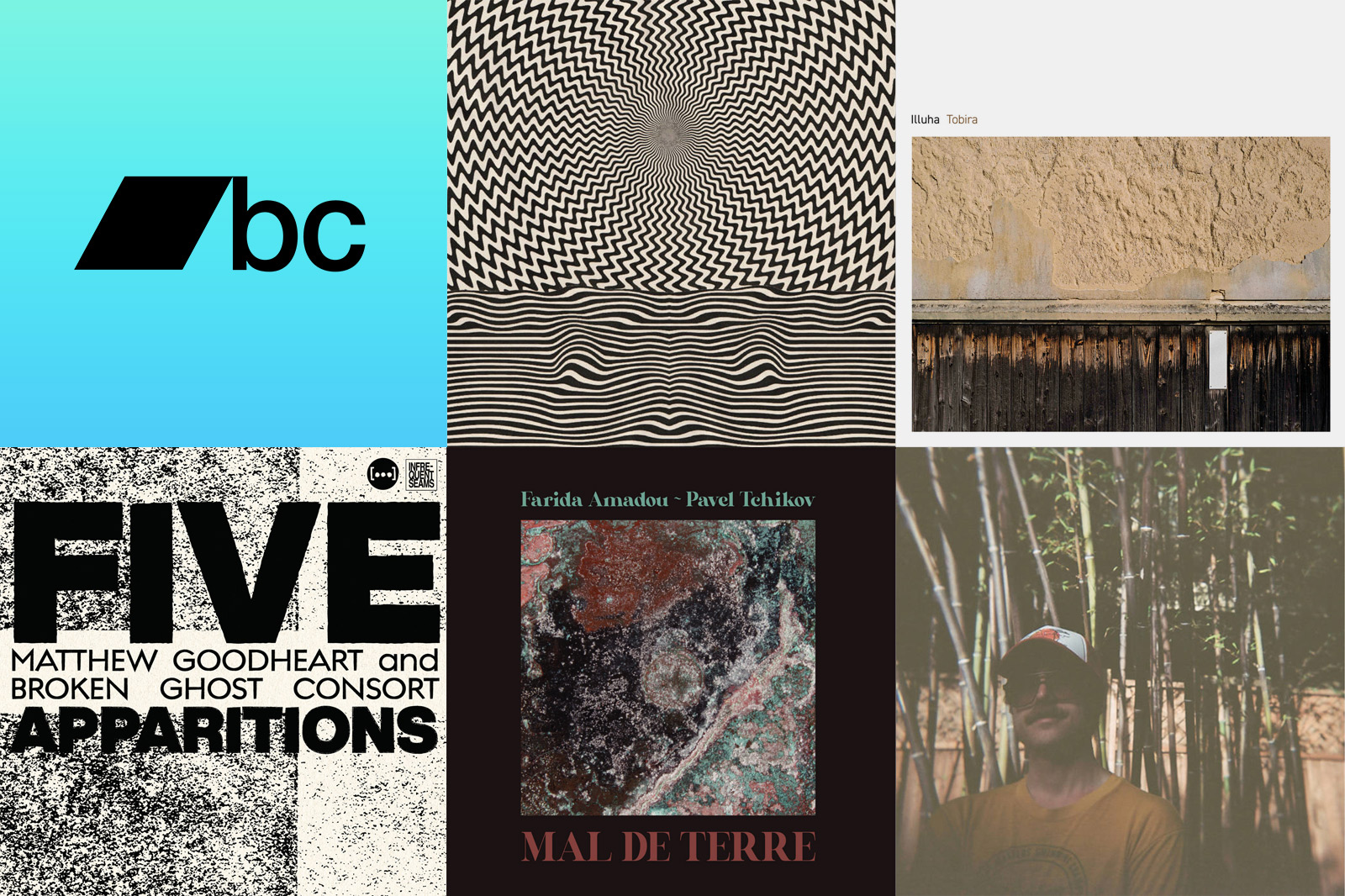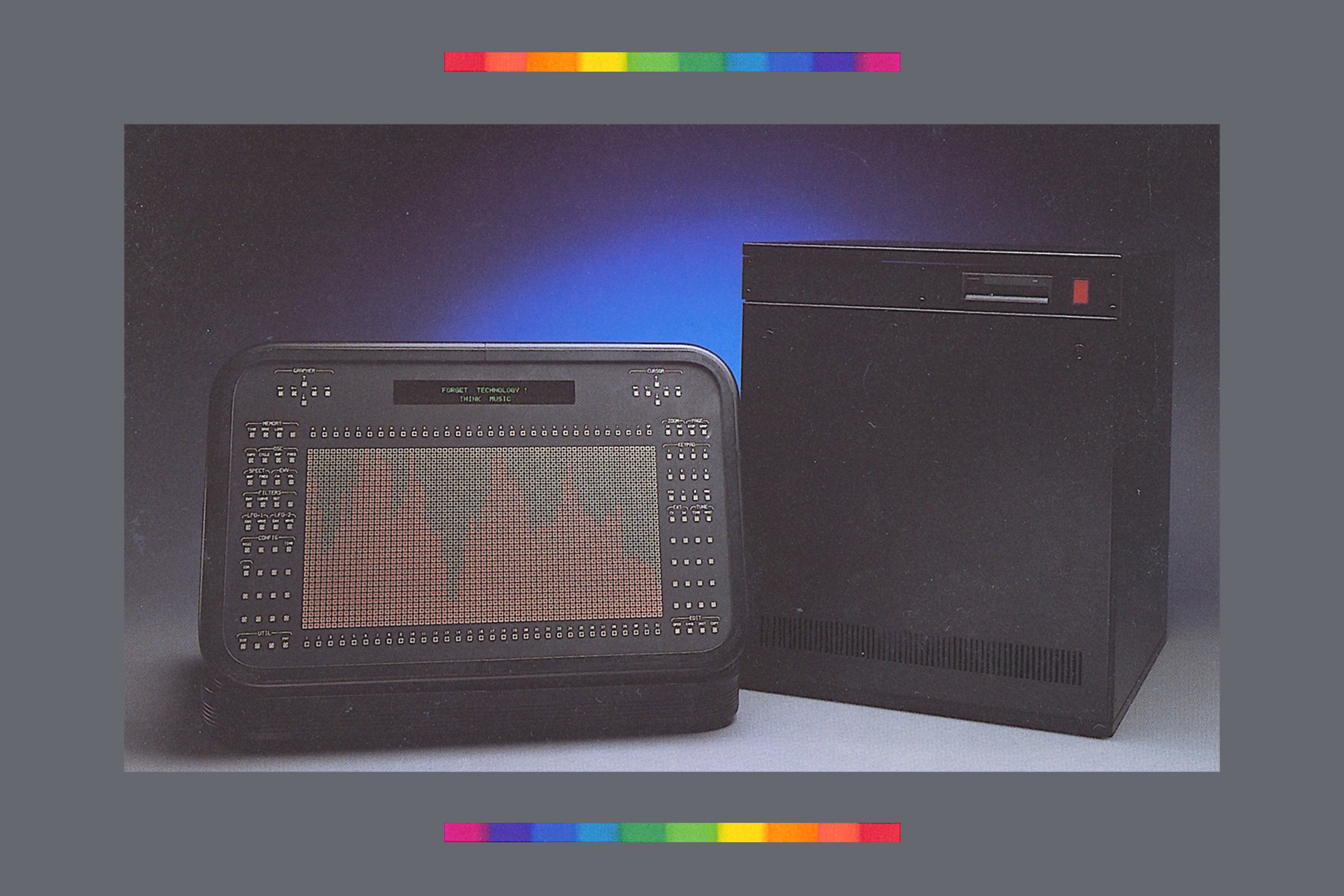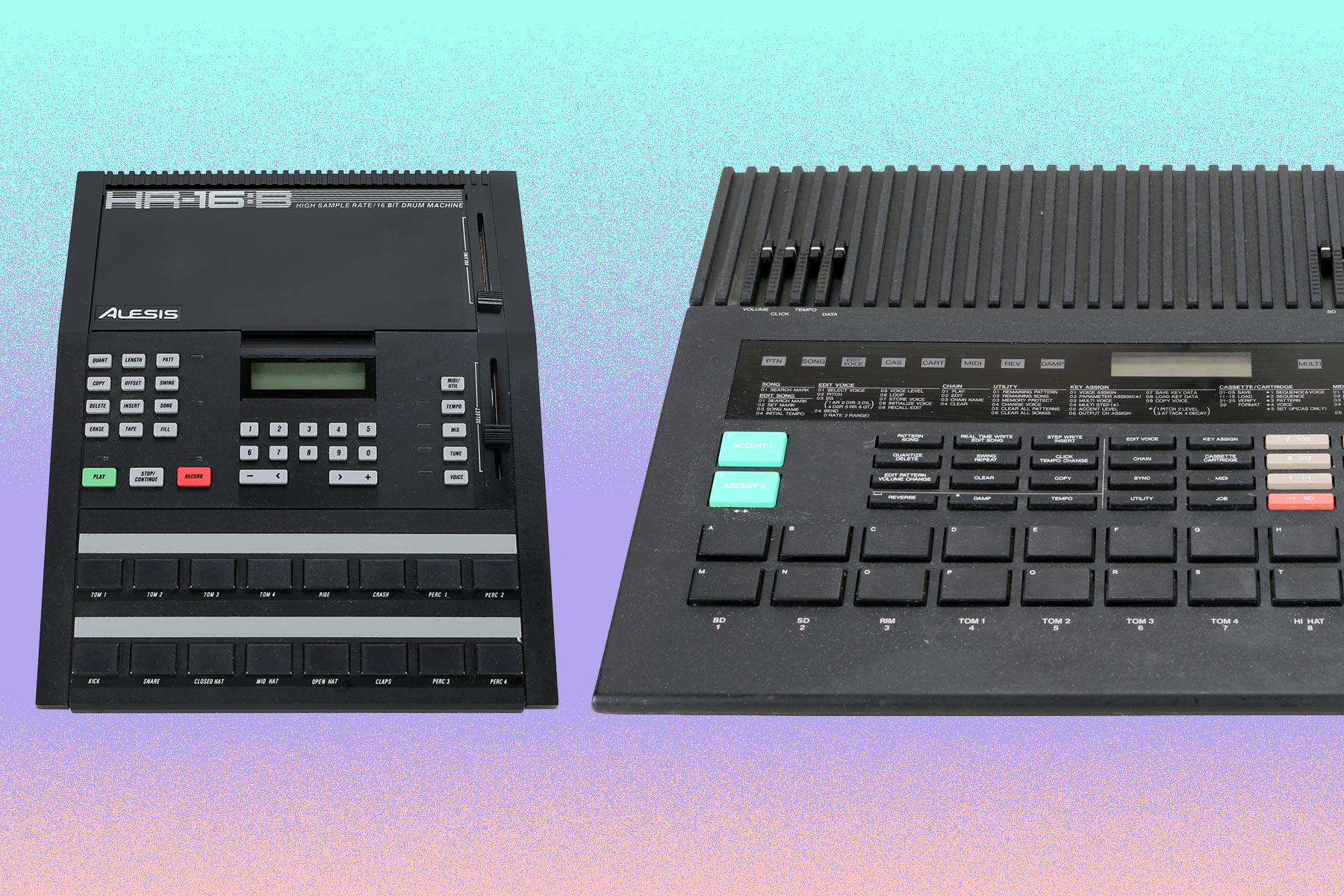That special day has come again! That's right, it's Bandcamp Friday—the semi-regular music lover holiday where Bandcamp waives its fees and puts all proceeds directly toward the independent artists and labels whose music you buy. So if you've been meaning to grab the latest record from one of your favorite artists or your friend's new mixtape, today is the day.
Need some suggestions? There's tons of music out there, but as always we're here to share with you some of the music that's been grabbing our attention recently. Check it out.
Illuha: Tobira
12k is a label that has released some incredible work in the realm of experimental and ambient music. Run by mastering engineer Taylor Dupree, the curation is second-to-none—with new releases constantly being churned out, showcasing the rich variety of the international experimental music scene. Tobira from Illuha, previously a duo with Tomoyoshi Date and Corey Fuller, brings a third member to the group with percussionist Tatsuhisa Yamamoto to create a wonderful imaginary landscape. With gentle washes, tasteful field recordings, and expertly gentle percussion, this is a release that is a delight start-to-finish.

We open up with "Mukaemizu," a track that sets the stage for the rest of the album and serves as an invocation of sorts. Sparse percussion and an electronic breeze transports you into this world, which is intimate and remote. While percussion is a prominent texture on this album, lush washes of ambient bliss and gentle plucks of acoustic instruments help to fill the sonic space. "Monkou" is an example of this where percussion fulfills a more tonal and abstract role as opposed to rhythmic. Sacred and wondrous, this track will suck you in and envelop you in its world.
"Nijiriguchi," in the middle of the album, might just be the best example of three musicians blending together in equal measure with the perfect balance of textural soundscapes, focused tonal passages, and a rhythmic drive. Throughout the album's six tracks, we get a complete picture of what it's like to exist in the same space as these three musicians who are tasked with bringing us into new dimensions where time sprawls and our focus clears. You are in safe hands, traveler.
Farida Amadou & Pavel Tchikov: Mal De Terre
Typically, when I select an album for my Bandcamp Friday contribution, I try to choose something among more recent releases. With the sheer volume of amazing music out there, it's challenging enough to select just one album to write about. So, at the very least, this focus on newer releases acts as a filter to simplify the selection process. However, I often stumble upon releases from a few years, or sometimes even decades back, that I genuinely like. On such occasions, I feel it's important to bypass the filters and just share the music. Mal De Terre by Farida Amadou & Pavel Tchikov isn't even an old release—it came out at the end of 2021. However, I only recently learned about Farida Amadou's music, and this collaboration with Pavel Tchikov felt like a particularly apt introduction.

I don't know about you, but when I think about musical textures, an electric bass is rarely the first instrument that comes to mind. However, for Brussels-based artist Farida Amadou, the connection seems natural. Amadou approaches the instrument with a variety of prepared techniques and effects processing, stretching the familiar sonic palette into vast, enveloping sonic worlds. Pavel Tchikov, Amadou's fellow Bruxellois, is a composer, improviser, and multi-instrumentalist who contributes bass, modular synthesizer, and voice to the musically ambitious sextet Ogives, and leads a solo synth-centric project, Anamnesis.
In Mal De Terre, Amadou and Tchikov meet at the intersection of two sister instruments: electric bass and guitar. The way the artists interweave these familiar instruments is wonderfully distinct, largely due to the primary focus on unconventional prepared techniques and the type of organic flow and layering that can only arise in the context of free improvisation. Without clear track names, Mal De Terre invites an unabridged listening experience, allowing one to be both overwhelmed and soothed by the divergent nature of sounds and moods the record encompasses.
The opener introduces the listener to the album by gradually engulfing them with waves of low-rumbling drones soon joined by a calming, arpeggiated guitar pattern. This establishes a continuously reappearing theme of tidal motions between catharsis and tranquility. The third and fourth tracks unfold the rhythmic dimension of the album, occasionally manifesting through nearly mechanical throbbing, and at other times as very human-like gestural inflections. The sixth piece changes the feel dramatically with a very soft, subdued riff on a pitch-shifted bass. However, midway through, this subtle melodic layer starts to be hijacked by raucous and anachronistic percussive accents, eventually fully submerging into discordant mayhem. Finally, the closing piece, which is also the longest composition on the album, leads immediately with a mildly fitful rhythmic bass, with the guitar soaring atop with a looping melody, expressively sliding across a memorable formation of notes. As the piece unfolds, it maintains a focus on this restrained tonal range, excelling in exploring how to maximize impact through gestural expressivity and subtle rhythmic transformations.
Mal De Terre emerges as a striking example of Farida Amadou and Pavel Tchikov's experimental spirit and inventive prowess. This album skillfully blends traditional instrumentation with adventurous execution, offering a unique auditory journey that holds equal potential to challenge and expand our musical perceptions. It’s an immersive experience that not only showcases the artists' distinct approaches to well-established instruments but also their ability to convey deep emotion and narrative through sound. For those whose interests orbit around ambient, experimental, and improvised music, this album is certainly a must-listen.
Check out Mal De Terre on Bandcamp!
Matthew Goodheart & Broken Ghost Consort: Five Apparitions
Infrequent Seams is an independent label spearheaded by New York contrabassist, composer, and improviser James Ilgenfritz. Rooted firmly in a history of improvisational practice carved out by musicians and movements like the AACM, Musica Elettronica Viva, Sonic Arts Union, No Wave, and the New York School, Infrequent Seams has curated a catalog of releases that both affirm the legacy of these improvised music pioneers and carry on its emergent expansion. Today we invite you to explore the next exciting offering from Infrequent Seams, Five Apparitions by Matthew Goodheart & Broken Ghost Consort.

A collaborative work divided into five ghastly tracks, Five Apparitions explores algorithmic composition and improvisational interactions. Within these guiding constraints and patterns of interplay, the Consort delivers a sonic world of morphing timbres and textures from the trio’s rich and ethereal composite sound. Georg Wissel’s clarinet squelches, squeals, and sings alongside George Cremaschi’s evocative and diverse bass gestures, all floating in and around Goodheart’s characteristic transducer-actuated percussion and piano. By attaching tactile transducers to metals, drums, and piano soundboards, Goodheart is able to turn any resonant body into a speaker system with a sonic profile that carries the signature of its material corpus. Goodheart refers to this practice as “re-embodied sound”, a concept he has explored in much of his music and installation work, in which the emergence of sound autonomously from actuated instruments draws us to interrogate the tangled relationship of acoustics, materiality, and technology.
Goodheart’s diverse palette of feedback tones, sample manipulation, and other computer-controlled methods of sound production often blend seamlessly with the timbres of the otherwise warmly acoustic clarinet and bass. This texture invites the listener into an imaginary landscape of electroacoustic fusion, wherein sonic cues delineating one musician from the next can start to feel uncertain or irrelevant to the broader system of musical interaction. The first half of “Apparition #4” is the most clear and consistent exploration of this texture on the album. Arranged as a ten-minute, shifting network of gently emerging feedback, clarinet multiphonics, and bowed bass tones before adopting a subtle rhythmic bass undulation in the back half, this fourth piece is an extended meditation under tension that asserts itself without compromise or resolution. As musicians delicately shift into and out of one another’s timbres, one can’t help but reconsider the relationships between sound and material, and how technology allows for these basic assumptions to be circumvented and reimagined.
While some of my favorite moments from the album are the extended and evolving composite textures, each musician shows a keen and richly connected awareness of one another evident in the more spritely and interactive passages. Indicative of time spent strengthening the embodied connections between instrument, performer, and ensemble sound, the improvisation on the album is reminiscent of the controlled chaos within ecological systems. Each musical contribution feels necessary in shifting the balance in and out of homeostatic states, creating formal developments that emerge organically from interplay within a defined system. In “Apparition #1”, the clarinet and bass respond to Goodheart’s returning transducer-actuated cymbal tone with increasingly energized growls and sharpened interruptions that spin seamlessly from one another’s phrases. As the tension rises, the energy becomes too great, giving way to a thickened drone that releases its tightly-held air, slowly deflating into haunting whispers and pointillistic pops.
In total, Five Apparitions is only about 48 minutes long, though the ensemble’s captivating control of tension amidst interactive play holds your attention in a place that feels both timeless and otherworldly. On repeated listenings, new patterns of relationship emerge as one becomes more deeply enmeshed in the sonic ether created by the ensemble. Somewhere between improvisation, composition, and sound installation, Five Apparitions by Matthew Goodheart & Broken Ghost Consort is a haunt worth returning to.
Check out Five Apparitions on Bandcamp!
Elliot Cole: The World Is Nothing
Computer music takes many forms, in no small part due to changes in available technology over the years. Today, the power of the internet and the abundance of freely accessible resources puts more creative facilities into the hands of tech-savvy artists. For electronic musicians, this includes extensive collections of sounds that may be retrieved, sampled, mangled, and otherwise transformed into totally new pieces of work—it's an aspect of modern electronic music we find incredibly exciting.

One of our Bandcamp Friday picks for this month is a short, two-track release from NYC-based composer Elliot Cole entitled The World is Nothing. Information on the composition of these tracks is sparse, but as described on the Bandcamp page, Cole employed the Freesound.org API to retrieve a broad variety of sounds, from spoken word recordings to samples of synthesizers, stringed instruments, and more. These sounds were then traversed and processed within the Supercollider computer music programming language, resulting in a 10-minute journey across sonic spaces.
Beginning with "The World," a dense opening with layers of synths and glitched-out spoken word samples gradually gives way to softer wind and stringed instruments layered with bells, piano, organ, and eerie drones. "Is Nothing" then begins slowly with plucked guitar samples before building back up into a massive sonic cloud, effectively ending where the first track began. Given the limitations of working with pre-recorded samples, music in the style of The World Is Nothing requires a curated organization of sonic material to create an overarching compositional form. Cole achieves this with excellence, venturing through immense drones, delicate orchestral passages, musique concrète moments, and rhythmic bursts of percussion.
Check out The World is Nothing on Bandcamp!
The Galaxy Electric: Buchla California 2018
Niche musical instruments often have strong associations with specific genres and stylings—and hearing them outside of that context is often delightfully surprising. Take the Buchla Music Easel, which has become something of an archetype for a "complete" electronic musical instrument that fits into experimental ensembles as well as solo performances. Retro-tinged space pop might not be your first association with the Music Easel, but that's precisely what The Galaxy Electric specializes in. The duo, consisting of Jacqueline Caruso and Augustus Green, creates music that sounds as if a 60s pop group was let into an early electronic music studio, and among their prominent tools of choice is the Music Easel—which fits into their sonic stylings phenomenally well.

Freshly released from their archives, Buchla California 2018 is a collection of solo instrumental tracks recorded by Augustus back in 2018 using only a Buchla Music Easel and some external effects. Though existing slightly outside of the usual stylings of The Galaxy Electric, these 11 tracks join the special club of Easel-only albums produced over the years and are another shining example of how versatile this instrument can be.
From tonal to experimental, the immense flexibility of the Easel is on full display across Buchla California 2018. "Deep Space Nebula" opens the album with signatures of the Music Easel sound: plucky pinged lowpass gates, sequences doused in spring reverb, and rich complex oscillator timbres. Later, "Carny Valley" ventures into driving rhythmic territories that could nearly be considered minimal techno, if not for the absence of the four-on-the-floor kick—but the aptly named track "Space Techno" nails the vibe with thumpy Buchla bass in its place. An immediate shift into Easel experimentalism is heard on the track "Hockey Night," complete with dissonant arpeggios and eerie meandering melodies. Simply put, the range of music here is a masterclass for anyone interested in Music Easel patching and performance.
We definitely recommend giving a listen to The Galaxy Electric's full discography, but you can start with Buchla California 2018 on Bandcamp!








